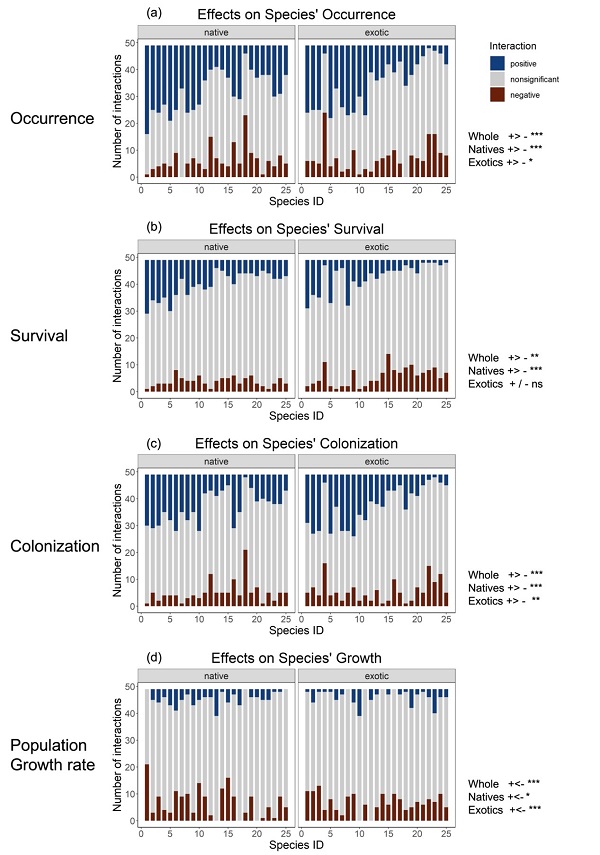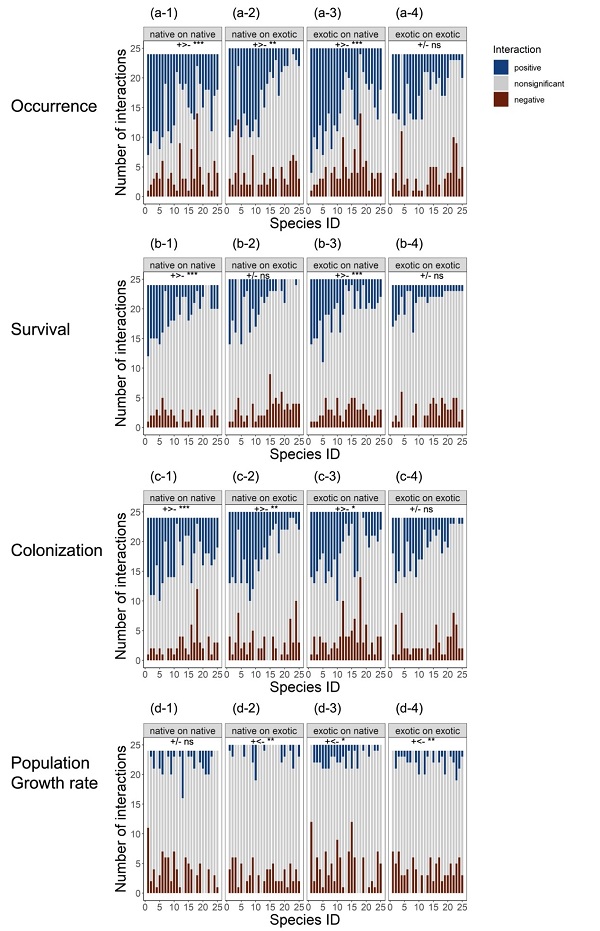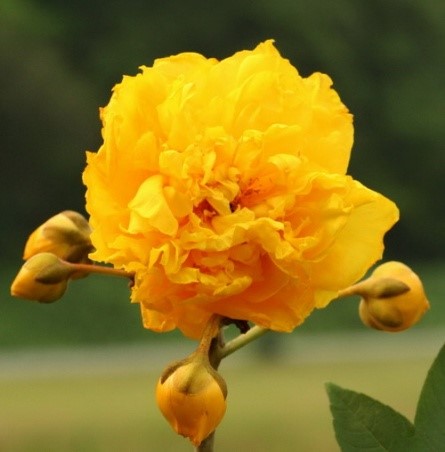

Positive interactions have been hypothesised to influence plant community dynamics and species invasions. However, their prevalence and importance relative to negative interactions remain unclear to understand community change and invasibility.
Assistant Prof. Deyi Yin, from South China National Botanical Garden, and her collaborators, examined pairwise biotic interactions using over 50 years of successional data of 480 plots to assess the prevalence of positive interactions and their effects on each focal species (either native or exotic). They found that positive interactions were widespread and the relative frequency of positive and negative interactions varied with establishment stage and between native and exotic species. Specifically, positive interactions were more frequent during early establishment and less frequent at later stages (Figure 1). Positive interactions involving native species were more frequent and stronger than those between exotic species (Figure 2), reducing the importance of invasional meltdown on succession. This study highlights the role of positive native interactions in shielding communities from biological invasion and enhancing the potential for long- term resilience.
The research article, entitled “Positive interactions of native species melt invasional meltdown over long- term plant succession” has been published online in Ecology Letters (IF2021:11.274). Please click on the link below to read more: https://onlinelibrary.wiley.com/doi/full/10.1111/ele.14127



